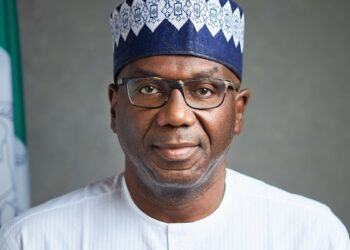
As the illegal trade in parrots continues to threaten their survival, conservation groups are calling for urgent action to protect these endangered birds in Nigeria.
Wild Africa and the World Parrot Trust have sounded the alarm, especially over the African grey parrot, once common in Nigeria’s forests but now rapidly disappearing due to decades of trapping and trafficking.
Even though grey parrots are protected under both Nigerian and international law, weak enforcement and demand from the exotic pet trade have allowed the illegal market to flourish. It’s estimated that more than 1.2 million wild-caught grey parrots were trafficked over a 40-year span. And since 40–60% of birds die during capture and transport, the true number taken from the wild could be closer to three million.
Signs of Progress
Despite the grim numbers, Nigeria has seen some positive developments in the fight against this brutal trade. In March 2025, the Nigeria Customs Service (NCS) intercepted over 300 parrot heads, drawing international attention to the cruelty involved.
A month later, in April, Nigeria Special Wildlife Officers (NSWO) rescued 12 live grey parrots being smuggled on a bus between Kaduna and Lagos. The birds are now recovering at the Pandrillus Nigeria Drill Ranch.
In May, a joint operation by the National Environmental Standards and Regulations Enforcement Agency (NESREA) and the National Park Service (NPS) led to the arrest of three suspected traffickers in Abuja. Authorities recovered several live African grey parrots along with other wildlife species.
Why This Matters
Speaking on World Parrot Day (May 31), Wild Africa’s spokesperson in West Africa, Dr. Mark Ofua, emphasized how important parrots are to forest health.
“Parrots are more than just brilliant colours and clever mimicry—they’re smart, social, and ecologically vital,” said Ofua. “Their decline reflects the health of entire ecosystems. On World Parrot Day, let’s honour their resilience by protecting their habitats and freedom.”
Parrots play a key role in forest regeneration by dispersing seeds. Their disappearance has serious consequences—not just for nature, but also for local communities that have lived alongside them for generations.
The World Parrot Trust echoed this concern. According to their Nigeria Country Coordinator, Ifeanyi Ezenwa, more awareness is needed to help the public understand how parrot trafficking is harming the country’s wildlife heritage.
“We’ve seen encouraging action from agencies like NESREA, NCS, and NPS,” said Ezenwa. “But many people still don’t realize just how damaging the exotic pet trade is to our natural environment.”
Pushing for Stronger Laws
In response to growing concerns, Nigeria has introduced the Endangered Species Conservation and Protection Bill, which recently passed its third reading in the National Assembly.
Conservationists are urging lawmakers to pass the bill quickly and are also calling for more public education, tougher enforcement, and policies that protect both parrots and their habitats.
They’re also asking governments, businesses, and individuals to take real action—before it’s too late.



![Viral House Party Video Sparks Conversation on Changing Social Norms Among Nigerian Mothers [Watch Video]](https://kumornews.com/wp-content/uploads/2026/02/Viral-House-Party-Video-Sparks-Conversation-on-Changing-Social-Norms-Among-Nigerian-Mothers-Watch-Video-1-360x180.jpg)












![[Watch Video] Burna Boy Celebrates After Successfully Flying a Helicopter](https://kumornews.com/wp-content/uploads/2025/06/excited-burna-75x75.jpg)

